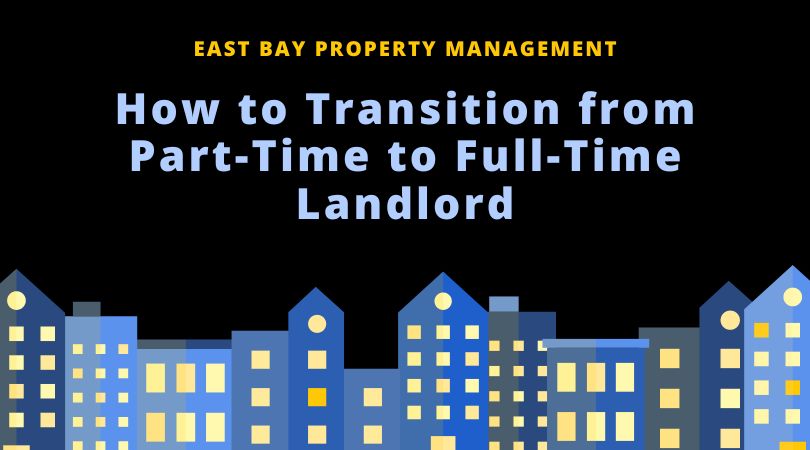Most property owners might start their business by investing in one or two rental properties, increasing their responsibilities and portfolio if the role suits them. If this applies to you, and you want to shift from being a part-time landlord to a full-time landlord, this article has all the best information for you!
Benefits of Being a Full-Time Landlord
Although being a full-time landlord isn’t a responsibility that fits everyone, a lot of advantages come with it. Here are just some of them:
- Solid monthly income – As a full-time landlord, you can focus on maximizing your rental income and apply effective strategies to grow it further.
- Flexible lifestyle – One of the best things about becoming a full-time landlord is the freedom from a designated work schedule. Without a supervisor to assign deadlines, you can enjoy flexible work hours. You can go on leave with little notice and extend your vacation days.
- Tax advantages – Investing full-time in real estate management comes with plenty of tax advantages, as there are many property-related deductions. Make sure to stay up to date on the best tax tips and practices to maximize your results.
Part-time landlords may enjoy similar perks, but full-time landlords experience maximum advantages.
Tips for a Hassle-Free Transition from Part-time Landlord to Full-time Landlord
It’s understandable to feel a bit of anxiety when deciding to become a full-time landlord. However, as long as you make the necessary preparations before jumping into the new role, the benefits of the transition can be tremendous.

Here are some great strategies to accomplish this:
Set Aside Some Money
You should set aside some money and save up before resigning from a job. Decide on your time frame to become a full-time landlord and give yourself time to adequately prepare. Aim to save for three to six months’ worth of living expenses. When possible, a budget that covers a year of expenses is best, especially if you have no other full-time sources of income.
Go over your monthly expenses. How much are you spending and what are you spending money on? You should focus on basic things such as food, shelter, transportation, and healthcare. Utility payments and other fixed costs can’t be neglected either, so make sure to account for them.
Multiply your monthly expenses by a certain number of months to know how much you should be putting aside. Non-essential things such as entertainment can be trimmed down. This will help you reach your budget faster and enable your transition from part-time to full-time landlord.
Focus On Increasing Your Portfolio
It’s recommended to avoid making the leap to full-time landlord if you only own one rental property. Owning two or more rental units is more financially secure. Maintaining a rental property can be demanding and you’ll need a bigger income to survive without a regular job to cover your living expenses.

Managing more than one space can also help you realize if becoming a full-time landlord will be a good fit for you before starting the transition.
Seek Out Mentors
Getting into real estate can be challenging, especially without adequate support. If you have a network of people you can turn to, it all becomes much easier. Experienced professionals can help you deepen your knowledge and can teach you the best industry practices.
Mentors can also help you avoid common landlord mistakes and costly errors. Given their experience and expertise, they know how to navigate the complexities of the business. They can determine the right solutions, share their resources, and provide more opportunities from their own long-term network.
Avoid Burning Bridges
Regardless of how you may feel about leaving your job, you should always strive to leave on good terms with everyone. You might need a referral from your former company later on and it’ll be easier to obtain if you remain on good terms with your previous employers.
Burning bridges can also limit your network. As a landlord, you want to preserve and extend your network and create a good business image. Keeping your professional network intact helps you in infinite ways. Act professionally and don’t talk negatively about your previous company and colleagues. People you formerly worked with might be able to refer new renters to you.

Properly inform your company when you resign from your job and be clear about the industry you’re entering. Some of them might offer support by providing additional resources, great deals, and network expansion by introducing the right mentors and professionals in real estate.
Make It a Goal to Add New Properties
A good way for landlords to protect their time is to be goal-oriented. Most landlords generally invest in a new property each quarter. By following that timeline, you would own eight properties in two years’ time, which would allow you to live off the rental income.
You can engage in the services of a property management company to oversee your rental units. Having a fully committed professional team responsive to the concerns and issues of your renters and properties can help you in the long-run. You can use your time to look for new opportunities and expand your real estate portfolio.
Partner with East Bay Property Management
East Bay Property Management has the expertise necessary to help you manage your multi-family properties, commercial units, and apartments. We offer a wide range of services, such as tenant screening, rent collection, and property maintenance. Contact us today!






